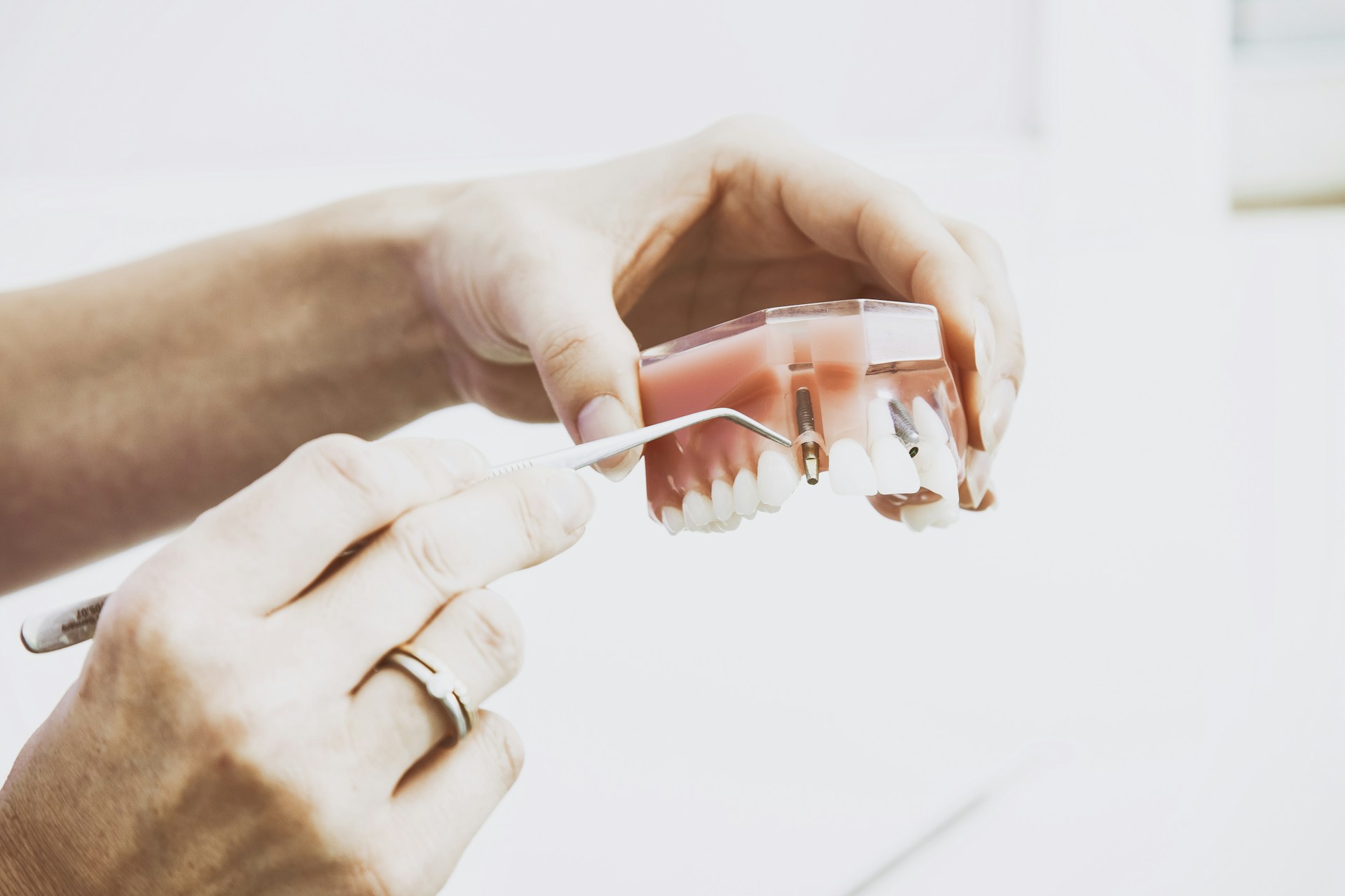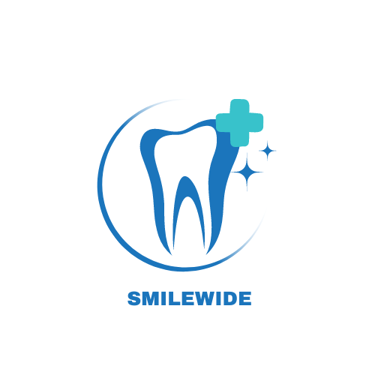SMILE- It costs nothing !!!
Child Dental Visits: Ideal Times & Importance of Early Checkups
2/8/2024


Child Dental Visit
As parents, we strive to provide the best possible care for our children, ensuring their health and well-being from the moment they come into this world. Among the many aspects of their health, dental care holds a significant place.
Yet, determining the right time to initiate dental visits for your child can be puzzling amidst the myriad of recommendations and opinions.
From the emergence of their first tooth to navigating the tumultuous terrain of adolescence, understanding the optimal timing for dental visits is crucial for laying the foundation of good oral hygiene and ensuring a lifetime of healthy smiles.
When Should Your Child Visit the Dentist?
The American Academy of Pediatric Dentistry (AAPD) recommends that children should have their first dental visit by the age of one, or within six months of their first tooth eruption.
This early visit allows the dentist to monitor your child's oral health and address any concerns or issues that may arise.
Starting dental visits early can help your child become familiar with the dental office environment, reducing anxiety and fear in the future.
It also allows the dentist to provide guidance on proper oral hygiene practices and answer any questions you may have as a parent.
RELATED : A guide to dental caries in children
What Happens at Your Baby's First Dental Visit?
Your baby's first dental visit is typically short and focuses on establishing a positive relationship between your child and the dentist. Here's what you can expect:
1. Introduction and Discussion
The dentist will introduce themselves to you and your child, creating a friendly and welcoming atmosphere.
They will discuss your child's oral health history, any concerns you may have, and address any questions you may want to ask.
2. Oral Examination
The dentist will perform a gentle examination of your baby's mouth, checking for any signs of tooth decay, gum problems, or other oral health issues.
They may use a mirror and a small dental instrument to get a closer look at your baby's teeth and gums.
3. Cleaning and Fluoride Treatment
If necessary, the dentist or dental hygienist will clean your baby's teeth using a soft toothbrush or a cloth.
They may also apply a fluoride treatment to help strengthen the tooth enamel and protect against cavities.
4. Oral Health Guidance
The dentist will provide guidance on oral hygiene practices, including proper brushing techniques, the use of fluoride toothpaste, and the importance of a healthy diet for your baby's dental health.
They may also discuss teething, pacifier use, and thumb-sucking habits.
5. Next Dental Visit
Before you leave, the dentist will schedule your child's next dental visit. Regular check-ups every six months are typically recommended to monitor your child's oral health and address any concerns in a timely manner.
RELATED : Teeth grinding / Bruxism
At what ages should children visit dentist ?
The importance of visiting dentist at different ages :
Infancy: Birth to 12 Months
While most parents may not realize it, dental care should begin even before the first tooth appears. It is recommended to schedule your child's first dental visit within six months after their first tooth erupts or by their first birthday, whichever comes first.
This early visit allows the dentist to examine the baby's mouth, check for any signs of decay or abnormalities, and provide guidance on oral hygiene practices.
During this stage, the dentist will discuss the importance of proper feeding habits, including breastfeeding and bottle-feeding, as well as how to clean the baby's gums and emerging teeth.
Early dental visits help establish a positive relationship between the child and the dentist, making future visits less intimidating.
Toddlerhood: 1 to 3 Years
As your child grows and more teeth emerge, regular dental visits become even more crucial. By the age of three, most children have a full set of primary teeth.
Regular check-ups every six months allow the dentist to monitor the development of the teeth and jaws, identify any potential issues, and provide preventive care.
During these visits, the dentist will assess the child's oral hygiene practices, provide guidance on proper brushing and flossing techniques, and discuss the importance of a healthy diet for maintaining good oral health.
Additionally, the dentist may apply fluoride treatments to strengthen the teeth and provide protection against cavities.
Preschool Years: 3 to 6 Years
The preschool years are an important time for dental visits as children become more independent in their oral hygiene routines. Regular check-ups every six months help ensure that the child's teeth are developing properly and that their oral hygiene practices are effective.
At this stage, the dentist may also discuss the importance of limiting sugary snacks and drinks, as well as the use of pacifiers or thumb sucking.
If necessary, the dentist may recommend orthodontic evaluations to assess the need for early intervention to correct any bite or alignment issues.
Elementary School Years: 6 to 12 Years
As children enter elementary school, dental visits should continue every six months to maintain optimal oral health. This period is crucial as permanent teeth start to erupt, and any potential issues can be identified and addressed early on.
During these visits, the dentist will monitor the eruption of permanent teeth, assess the child's brushing and flossing techniques, and provide guidance on maintaining good oral hygiene habits.
The dentist may also discuss the importance of wearing mouthguards during sports activities to prevent dental injuries.
Teenage Years: 12 to 18 Years
Teenagers often face unique dental challenges, including the eruption of wisdom teeth and the potential for orthodontic treatment. Regular dental visits every six months help address these issues and ensure that the teenager's oral health is well-maintained.
During these visits, the dentist may take X-rays to monitor the development of wisdom teeth and determine if extraction is necessary. The dentist will also discuss the importance of maintaining good oral hygiene habits, including regular brushing, flossing, and the use of mouthwash.
Additionally, the dentist may provide guidance on the importance of a balanced diet and the effects of tobacco and alcohol on oral health.
RELATED : Teething in children
Pediatric Dentist or Family Dentist?
When it comes to choosing a dentist for your child, you have two options: a pediatric dentist or a family dentist. Both can provide quality dental care, but there are a few differences to consider:
Pediatric Dentist
A pediatric dentist specializes in treating children, from infancy through adolescence.
They have additional training and experience in dealing with children's dental needs, behavior management, and child-friendly dental techniques.
Pediatric dental offices are often designed to create a fun and welcoming environment for children.
Family Dentist
A family dentist, on the other hand, provides dental care to patients of all ages, including children.
They are trained to handle a wide range of dental needs and may have experience working with children as well
Family dental offices typically cater to the needs of the entire family, making it convenient for parents to schedule appointments for themselves and their children.
The choice between a pediatric dentist and a family dentist ultimately depends on your personal preference and your child's specific needs.
If your child has any special dental needs or requires specialized care, a pediatric dentist may be the best option. However, if you prefer the convenience of having the whole family treated by the same dentist, a family dentist may be a suitable choice.
Regular dental visits from an early age are essential for your child's oral health. By taking your child to the dentist at the recommended age, you can ensure that their teeth and gums are properly cared for.
Remember, whether you choose a pediatric dentist or a family dentist, the most important thing is to find a dental professional who can provide gentle and age-appropriate care for your child.
So, schedule that first dental visit for your little one and set them on the path to a lifetime of healthy smiles!

Contact Smiles
drdeepi15@gmail.com
Dr. Deepika B.D.S
© 2025 SmileWide Dental. All Rights Reserved.
Have doubts ..?
